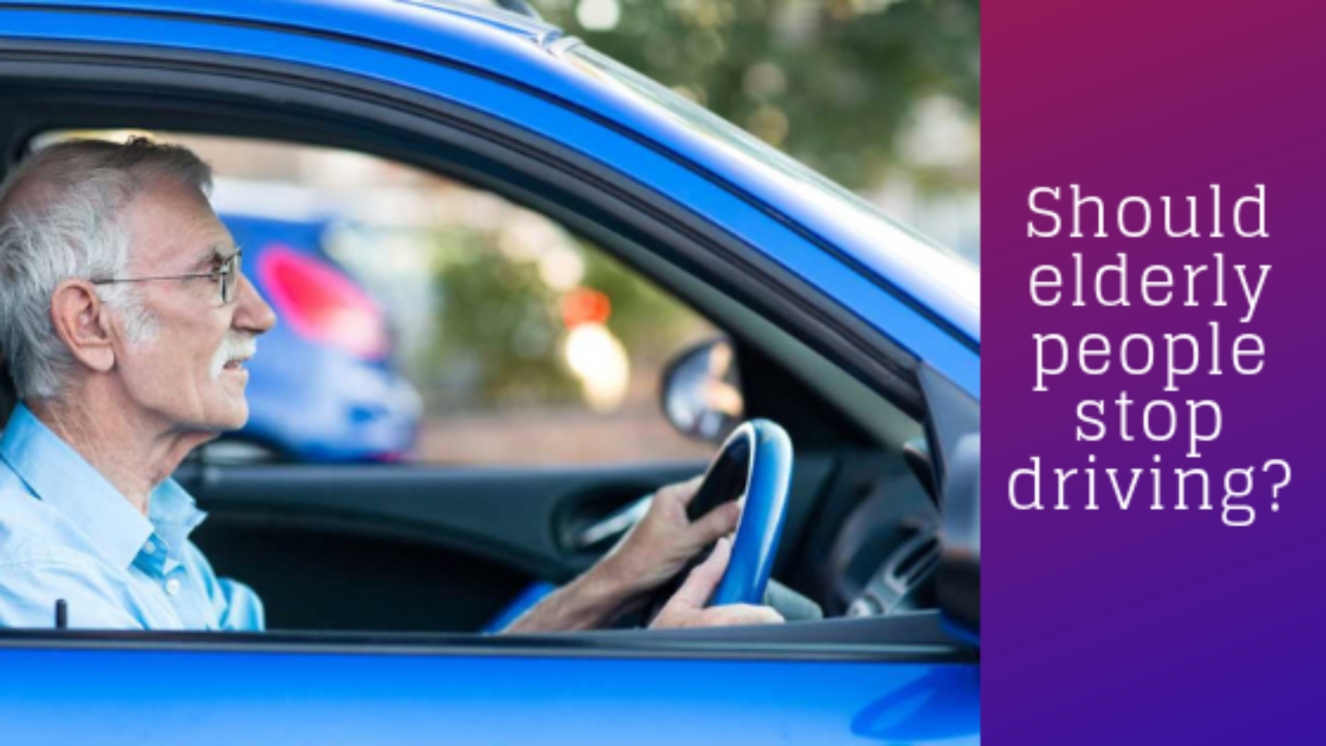
It’s not easy to make the decision to tell a loved one to stop driving, or to have to admit that the time has come. Many elderly people may feel a loss of freedom or experience frustration when they are no longer able to drive. While these emotions are normal, it is important to recognize the signs that it is dangerous for someone to get behind the wheel of a car.
Make an Honest Health Assessment
Two of the most important factors to consider when approaching a senior who might no longer be able to continue driving are their mental and physical health.
Factors such as vision, hearing, reflexes and physical coordination are prime among issues which can hinder an aging driver from being efficient and alert when heading out onto the road.
A driver who struggles to see or hear, regardless of age, will have difficulty identifying hazards, road signs and obstacles up ahead or around their vehicle. Additionally, an unreliable reaction time or diminished physical strength and range of motion can create instances in which a driver has a delayed or labored response to quick decisions and movements necessary to operating a motor vehicle. The demands of the road can be unpredictable. While a casual driver does not need to be in peak physical shape to meet those demands, you may encourage any aging loved one to be realistic about limitations they may face when attempting to complete ordinary motions in their car.
 Along with these factors, are more specific ailments which can create complications while attempting to drive. These include conditions such as glaucoma, dementia, Alzheimer’s disease, Parkinson’s, cataracts, arthritis, seizures, diabetes and other chronic issues.
Along with these factors, are more specific ailments which can create complications while attempting to drive. These include conditions such as glaucoma, dementia, Alzheimer’s disease, Parkinson’s, cataracts, arthritis, seizures, diabetes and other chronic issues.
Warning Signs
Many seniors exhibit warning signs that driving is no longer safe. You may have already noticed some of these, and there may be others you should keep an eye out for.
- Failure to yield or stop when prompted by signs or traffic lights
- Inability to recognize the right of way
- Inability to keep track of speed limits
- Forgetting to signal when turning or switching lanes
- Routinely becoming lost (especially in familiar areas)
- Inconsistent acceleration (erratic control of speeds)
- Challenges with recognizing distance between vehicles and objects
- Difficulty merging and changing lanes
- Frequent “near-misses” in which accidents almost occurred
- Road rage, anxiety and stress
More obvious signs, such as vehicle damage, frequent traffic violations and collisions may warrant more immediate intervention.

How to Have the Talk
Now that you know what to look for regarding your aging loved one’s current health condition and any issues they may already be having while behind the wheel, you should think about the best way to approach them. It’s best to lead with compassion, as the decision for a person to surrender their driver’s license can potentially feel like a debilitating loss of personal freedom.
Ultimately, your goal should be to leave the conversation with your loved one feeling as if you made decision together, instead of feeling like they have been given a directive. You also don’t want to make them feel as if they are a public nuisance, threat or hazard, as this process is natural. Also, you want to provide support for alternatives that can make this transition easier on your loved one, ensuring that with understanding and an open mind they can find new, efficient ways to get around that may even be more of privilege than having to drive themselves around.
Ask Questions
In order to make this decision feel mutual, you may find more success in having reverence for your loved one’s experience. Rather than laying all the information you’ve gathered on them, ask them specific questions about their personal health and their experiences on the road. How do they feel when they drive? What challenges have they faced when driving alone? Have they noticed any changes in their ability to do tasks that used to be much easier?
If you have fostered an honest space for your loved one to share, they may provide insights you never noticed about their behaviors on their road. They may even begin to see for themselves that relinquishing their license might be the best choice available to them, making your conversation much easier.
Leave a reply











Leave a reply